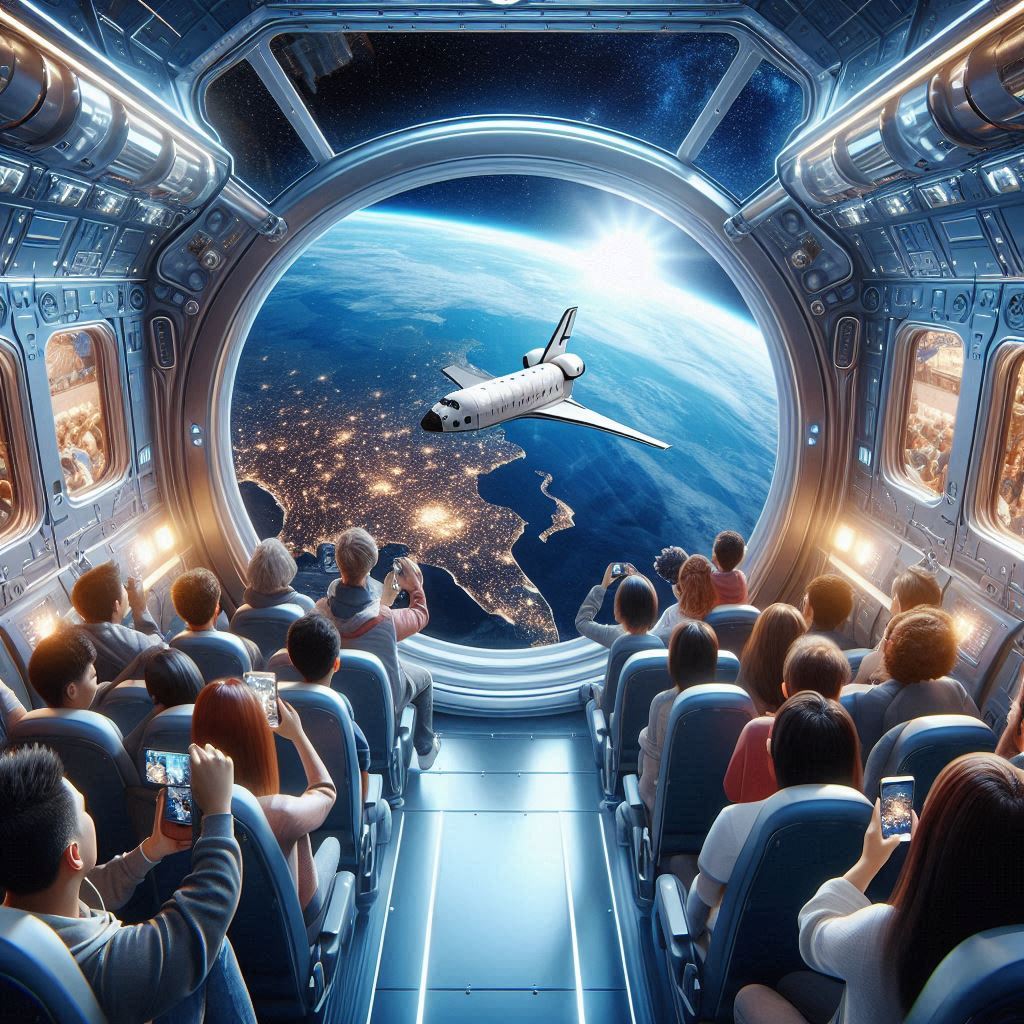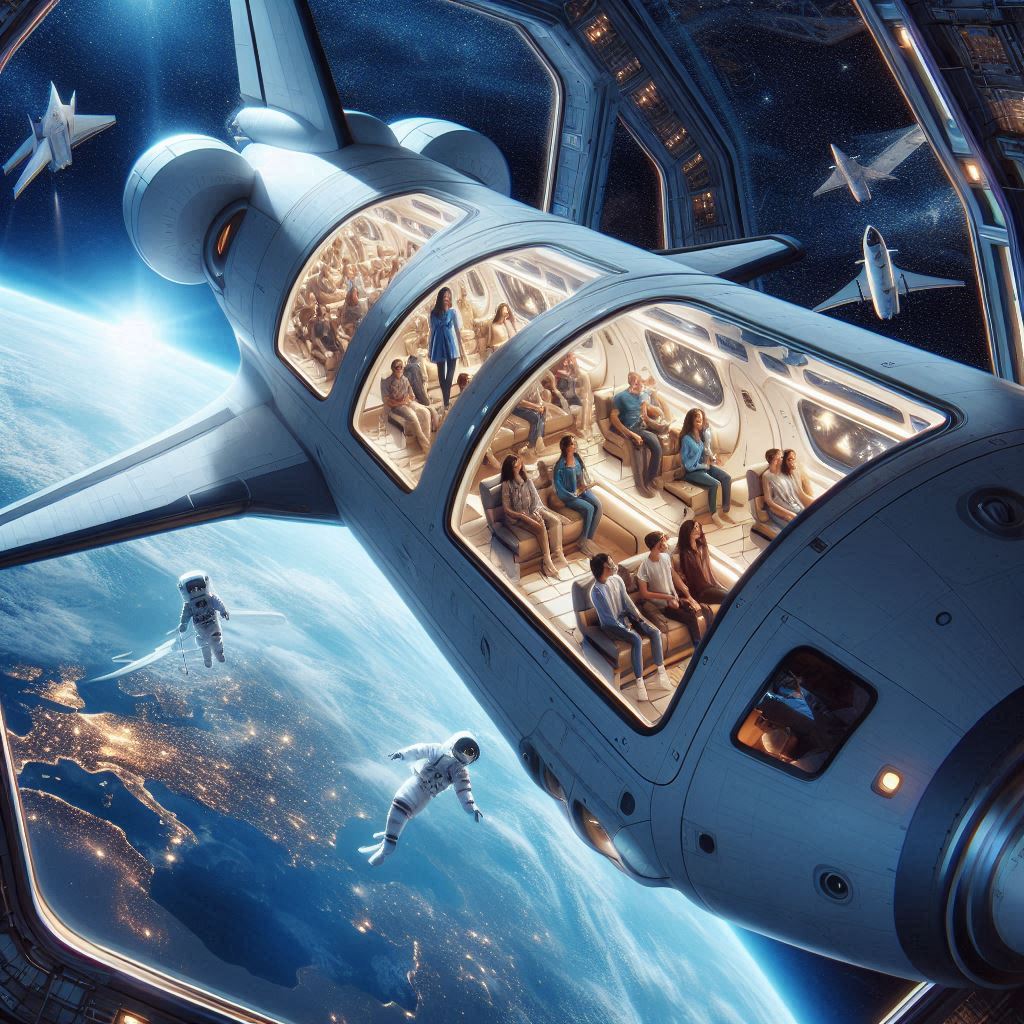For decades, space tourism was a fantasy reserved for science fiction and the ultra-wealthy. But in 2025, it’s officially becoming a real-world industry—with ticket sales, training programs, launch schedules, and even zero-gravity vacations. Space is no longer just for astronauts. It’s becoming accessible (albeit slowly) to civilians, celebrities, and soon, high-paying thrill-seekers.

🚀 The Big Players Making It Happen
Several private companies are competing in the race to commercialize space tourism. Here’s where the major contenders stand in mid-2025:
- SpaceX: Elon Musk’s company continues to lead the pack with Starship launches designed for both space tourism and lunar missions. Its “dearMoon” mission, scheduled for 2026, will carry civilian artists around the Moon.
- Blue Origin: Jeff Bezos’ firm has already completed 25+ successful suborbital flights with its New Shepard rocket. Celebrities, researchers, and paying customers have flown briefly into space, experiencing a few minutes of weightlessness.
- Virgin Galactic: Richard Branson’s suborbital spaceflights via SpaceShipTwo are now taking place on a monthly basis, offering brief trips to the edge of space from New Mexico’s Spaceport America.
- Axiom Space: This startup has begun organizing multi-day stays on the International Space Station (ISS) and is constructing the first commercial space station, scheduled to detach from the ISS by the late 2020s.
🧳 What Does a Space Tourist Experience?
Right now, most space tourists go on suborbital flights, which last 10–15 minutes and reach an altitude of about 100 km (the Kármán line):
- Zero gravity: Passengers experience 3–5 minutes of weightlessness.
- Spectacular views: The curvature of the Earth, blackness of space, and bright blue atmosphere are visible.
- Training: Prior to flight, tourists undergo 2–5 days of training in emergency procedures, g-forces, and cabin safety.
Some higher-end missions (like those aboard SpaceX’s Crew Dragon) offer multi-day orbital stays, where tourists orbit the Earth every 90 minutes.
💸 How Much Does It Cost?
As of 2025:
- Virgin Galactic: ~$450,000 per seat
- Blue Origin: Undisclosed pricing, rumored to be around $300,000–$500,000
- SpaceX: Custom pricing, ranging from $50 million to $70 million for orbital missions
- Axiom Space: ~$55 million for a 10-day stay on the ISS
Prices are expected to drop gradually as competition, innovation, and reusability improve.
🌍 Environmental and Ethical Concerns
With rising interest comes rising scrutiny:
- Carbon emissions: Rockets emit massive amounts of CO₂, though reusable systems like SpaceX’s Starship are more efficient.
- Space debris: Frequent launches raise risks of orbital congestion and potential collisions.
- Inequality: Critics argue space tourism is a luxury for the rich while global issues like poverty and climate change remain unsolved.
📅 What’s Next in Space Tourism?
Looking ahead to 2026 and beyond, exciting developments are on the horizon:
- Space hotels: Companies like Orbital Assembly and Voyager Station are designing luxury accommodations in orbit.
- Lunar tourism: SpaceX aims to send tourists around the Moon within the next two years.
- Training hubs: Private astronaut training centers are popping up worldwide to support growing demand.
🤔 Should You Start Saving for a Ticket?
If you’re not a millionaire, you might not be flying just yet—but within the next decade, space travel could become more affordable for upper-middle-class adventurers, thanks to increased frequency and reusable tech.
And as AI, automation, and safety systems advance, the barriers to training and risk may continue to drop.
A New Age of Exploration
2025 marks a pivotal year in human history—when going to space is no longer exclusive to astronauts. It’s the beginning of civilian spaceflight as an industry, and while it’s still expensive and rare, it’s no longer science fiction. It’s happening—right now.
The real question is: When will you be ready to go?
😴Understanding Sleep Disorders and When to Seek Help
Sleep is…
Tips for Improving Sleep Quality Naturally
Tips for…
Sleep & Recovery Series: Overview
The Science…






